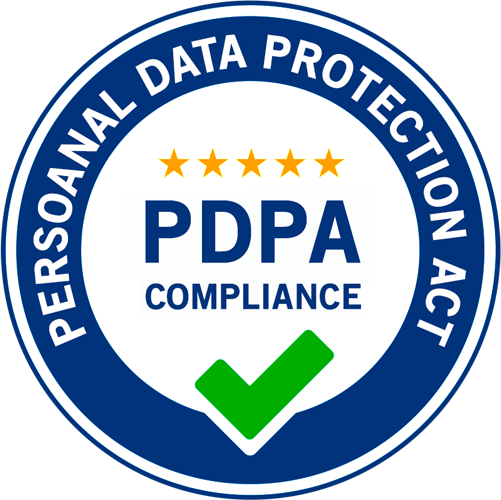Personal Data Protection Act
Thailand

Supervisory authority
- Data Protection Committee, Ministry of Digital Economy and Society
Liabilities under the PDPA
- Fine up to THB 5 million
- Imprisonment up to 1 year
- Compensation for actual damages plus punitive damages up to twice the amount of the actual damages
- Directors and other responsible persons could also be liable if the offender is a juristic person
Enforced with effect from
- 1 June 2022

Who will have to comply?
- All organizations established in Thailand
- Organizations outside of Thailand which collect, use, disclose and/ or transfer personal data of individuals in Thailand.
What type of data is protected?
- Personal data - any data that could, directly or indirectly, identify an alive person, including customers, employees, suppliers, business partners, etc.
- Sensitive personal data - Sensitive personal data - e.g. racial or ethnic origin, political opinions, religious beliefs, sexual orientation, criminal records, health data, genetics/biological data, etc.
Interested in learning more?
PDPA Key Compliance
Certain key protection methods
- Consent must be obtained for any collection, use, disclosure and/or transfer of personal data, except others as permitted by laws.
- Consent (if required) must be freely given, specific, informed and unambiguous, and can be withdrawn by the personal data owner.
- Privacy notice at the time of collection, e.g. purpose(s) of the collection, any potential disclosure/transfer of personal data, etc.
Use and disclosure
- Use and disclosure must be in line with the purpose(s) as consented by the owner.
- Transfer of personal data to foreign country must comply with the PDPA’s requirements.
Other requirements
- To ensure the persons’ rights under the PDPA, including the right to data portability and the right to erasure.
- To protect personal data with appropriate security measures.
- Data Protection Officer could be required for organizations that process personal data at a large scale, or process sensitive personal data.
- A registry documenting all personal data processing activities must be maintained.
- To notify data breaches to the Data Protection Committee within 72 hours, along with data subjects in case of high risks for them.
- Data controllers must ensure that sub-contractors/processors comply with the PDPA.


How to start?
- Review the legal basis for your data processing activities
- Ensure that the consent and privacy notice meet the PDPA requirements
- Ensure that your contracts with vendors/suppliers/third parties consist of adequate personal data protection provisions
- A registry documenting all personal data processing activities must be maintained.
- Have appropriate data governance policies and training